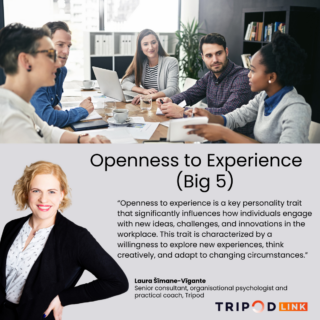
“Overflowing motivation/Willingness to learn/Eyes full of wonder/Seems interested/Productivity MAX” – such and similar descriptions are often heard when a new employee starts in the organization. We were used to the fact that this “honeymoon phase” in the organization with wonderful emotions continued at least until the end of the first year. Unfortunately, now, much more often, after just a few months, and sometimes even weeks, clients come back to us with amazement on their faces – “we don’t understand what happened, but it seems.. the love for the position has ended”.
Indeed, we observe a disturbing trend – it seems that the euphoria that new employees had has drastically shortened. And employers, faced with the same situation several times, rush to draw often incorrect conclusions, such as – nobody wants to work anymore. We can give in to these not very joyful feelings or think about why this is happening and what we as employers can do differently.
There are several factors today that determine the shortened honeymoon phase:
- During the selection process, the candidate thought they would be doing a different job than they actually are;
- We assessed the candidate’s motivation unsuccessfully;
- The candidate wants faster growth than there are opportunities in the organization;
- During onboarding, we made mistakes: we introduced too quickly or too slowly; we expected immediate results; we didn’t have much time to start building a relationship with the newcomer.
Analyzing each of these factors separately, we can derive rules that, if followed, can extend the honeymoon phase.
The first major category is recruitment.
So far, no one has found one correct way that would guarantee that every selection made would be 100% successful. What helps to move towards success is looking at the selection process as a system where it is necessary to make more than one step to find out if that candidate is really suitable for us. In our experience, the most common mistakes made are:
- Haste in hiring – it always needs to be yesterday or the day before yesterday, everything is on fire. Therefore, sometimes we grab a straw, as it is very painful to wait for the right candidate. There are successful recruitments, but most often, we end up either not seeing or missing many risks and choosing the wrong candidate due to haste.
- The candidate did not understand the position – it seems like we all speak the same words, but we don’t. When presenting the position, our responsibility as employers is to make sure that the other party understood us correctly. To ensure this, it is helpful to have more than one meeting, send an additional job description, and, of course, ask the candidate themselves how they understood the job offer they heard.
- The “first love” happened, we put on rose-colored glasses and start hearing what we want to hear. For example, a candidate mentions that learning opportunities and growth are important to them, and we offer a rather static position, but maybe they could grow in the company after a couple of years. We think the candidate will fit (just because they fit us very well) and ensure that they will definitely grow in the position. And look, after 6 months, the candidate is no longer in our company.
- We don’t consider whether the candidate will fit into the team and organizational culture, but because of good technical skills – we will adapt. As practice shows, this situation ends with the standard scenario – the organization itself says goodbye to the employee, often not even after the probationary period.
- We fail to assess motivation, we hear words, but we don’t put them into context. The candidate is highly motivated to work, let’s say, in the HR field. That’s what we heard. But why? What motivates them? Is the candidate motivated just because of the HR field? This is one of the most subtle moments in recruitment that you learn to notice only through practice and asking questions.
- “We had a good chat, I FEEL that everything matches what we are looking for.” Here the key words are – I feel. Hiring based on feeling certainly sometimes pays off, I can’t deny it, but more often than not during the course of work, it becomes clear that the gut feeling is not necessarily correct, and the first impression can really be misleading.
The second decisive category why the honeymoon period of a newcomer is shortened is insufficient growth. I must admit that sometimes new people do not wait long enough to realize that they have grown. A lot of candidates participating in our selection processes specifically point this out as one of the reasons they decided to look for a new job.
So, what should we, as organizations, or rather managers, do with this information? First of all, we need to arm ourselves with patience and be prepared to spend a year working with a new team member, focusing on learning and growth. So we pay attention to how that person has grown in a month, quarter, or half a year, what they have learned, what results they have achieved. It is important to remember that growth does not necessarily happen by changing positions – maybe our new team member learned something new, applied their existing knowledge, or started working more efficiently – all these are also indicators of growth. For us, as managers, talking to a new person, it is important to pay attention to these factors and help them see progress.
Market trends are such that this shortened honeymoon phase will not disappear anywhere. Therefore, if we want a new employee to be engaged and stay in the company much longer than the probationary period, we, as employers, will have to work extra. It’s time to forget that “love” for work is solely the responsibility of the person. Let’s change this view to relationships based on mutual responsibility, where the main goal of both parties is long-term.







